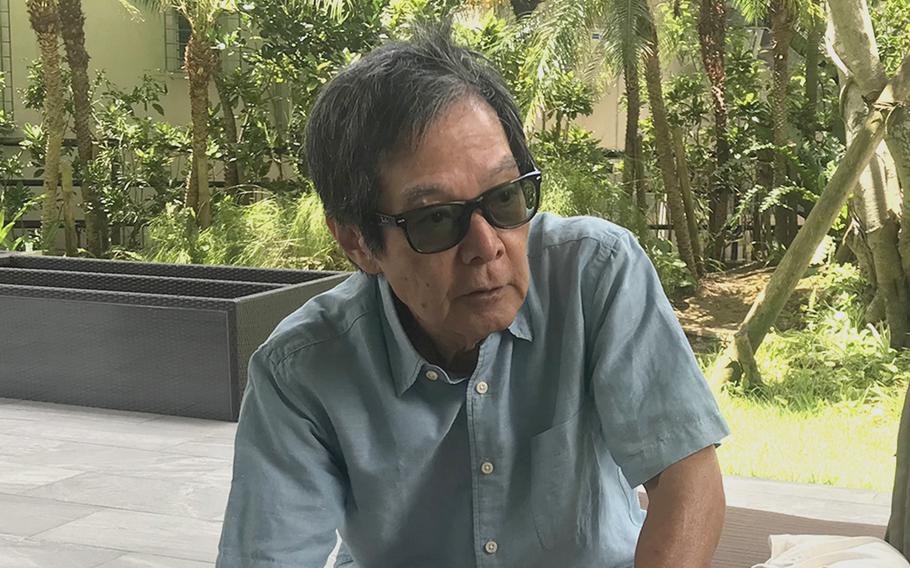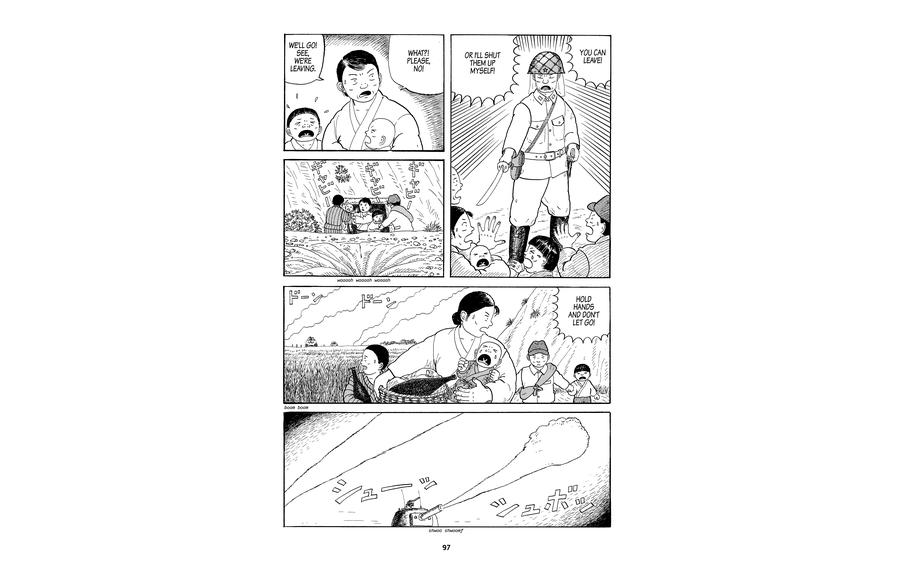Asia-Pacific
‘Okinawa’ manga volumes now tell island’s stories in English
Stars and Stripes August 16, 2023

Japanese manga artist Susumu Higa talked about his upcoming English-language manga release, "Okinawa," at the Hyatt Regency in Naha, Okinawa, Japan, on July 20, 2023. (Matthew M. Burke/Stars and Stripes)
NAHA, Okinawa — A popular Japanese manga artist is releasing the first English version of his acclaimed series on Okinawa through a U.S.-based comic book publisher.
Susumu Higa’s “Okinawa,” a combination of the manga “Sword of Sand” and “Mabui,” takes readers from the Battle of Okinawa in 1945 to the present. The 528-page tome through a series of vignettes portrays a variety of perspectives, from civilian war refugees to Japanese and American soldiers, local farmers, protesters and Okinawans working for the U.S. military.
The book is slated for release Tuesday through Seattle publisher Fantagraphics.
“Each reader has a different background; everyone can think their own way, some may agree, and some might disagree,” Higa told Stars and Stripes on July 20 at the Hyatt Regency Naha. “I would like them to overlap and know about the history of Okinawa.”
Manga are comic books and graphic novels originally produced and published in Japan. Unlike American comics, they are typically published in black and white, are episodic and read right to left.
Higa, 70, started late, submitting his first manga for publication at 33, he said. Both his parents survived the Battle of Okinawa, and under U.S. administration of the island until 1972, his life was consumed by both the war’s history and legacy.
“War was a very close topic to me,” he said. At 40, he quit his office job at Ryukyu University to work on manga full-time.
Higa has penned five books. “Sword of Sand” was serialized in the manga magazine “Big Comic” between 1992-1997, according to Japanese publisher Seirinkogeisha. “Mabui” was completed in 2010.
Together in the two-volume “Okinawa” they are “exhaustive and emotional,” reviewer Emilia Packard said in the “Library Journal” in June. “This is an intense labor of love by its creator and will likely prove fascinating and enlightening to the committed reader as well.”
Canadian freelance manga editor Christopher Woodrow-Butcher secured the publishing rights after first spotting the Japanese originals in 2010 and a later version in French, he said by phone Aug. 1.
“For me it was a no brainer, it was like ‘Oh my God, this is already in French; it’s a huge success; the work is really, really good,’” Woodrow-Butcher said. “We’ve got to do this.”
He said he approached Fantagraphics in 2016 and took over five years to adapt and edit the book, which was translated by Jocelyne Allen. Much of the editing was done by Woodrow-Butcher’s husband, Andrew.

Japanese manga artist Susumu Higa releases his "Okinawa" anthology in English on Aug. 22, 2023 through Seattle publisher Fantagraphics. (Fantagraphics)
The first volume, “Sword of Sand,” starts with Umisato, a former soldier turned teacher on the island of Maeshima in 1945, as he works to protect the civilian population from being caught between the two opposing armies.
Higa included his mother’s story; she fights to protect her young children from U.S. bombs and marauding Japanese troops, who then refuse to surrender and use civilians as human shields.
In the second book, “Mabui,” the goodwill earned by U.S. troops during the war quickly evaporates as land is seized for U.S. bases. Locals deal with aircraft noise, fires caused by flares and pilots ejecting into protected areas.
Americans — like a soldier who introduces baseball to the island and a pilot who forged a bond with local farmers after crashing his jet in their field — are largely portrayed in a positive light.
Higa takes issue instead with U.S. and Japanese government policies.
“The U.S. bases are too concentrated on the island,” he said. “I feel that the Japanese government is still using Okinawa as a sacrificial stone.”